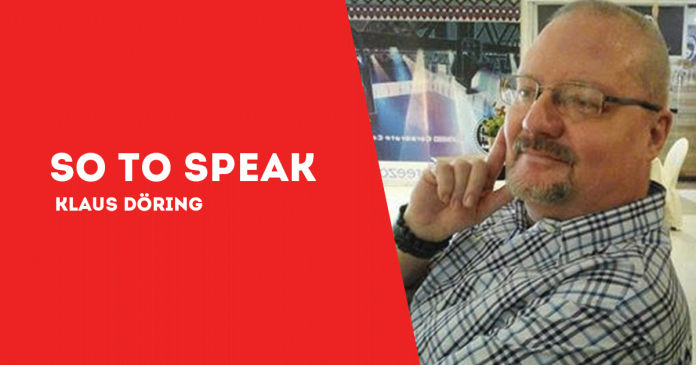
BY KLAUS DÖRING
ACTIVE listening is an important part of your communication skill set because it encourages openness, honesty, and success. When you pay attention to your conversation partner, you show that person they are being heard, thus building trust and making that person feel like their words matter to you.
Listening allows us to look within ourselves and become aware of the barriers that inhibit our ability to listen effectively.” As we better understand ourselves, we are then in a better position to understand others and show authentic compassion and empathy.
Do you sometimes feel like this, my dear readers, that you want to discuss something, but the people opposite to you simply cannot listen to you? Sometimes, I would love to tell them, “first, learn to listen”!
Listening is indeed the key in effective communication. A person does not have to speak all the time to be the smartest person in the room. Lack of listening may result in frustration, disappointment, and resentment in our relationships. When we listen, we are able to create stronger emotional connections with people.
Listening is a vital element of communication and it is very much different from the human sense of human. A meaningful communication requires both a good listener and a speaker. However, the effect of a listening style may vary depending on the occasions and situations a listener is in.
However, every time you use active listening, it gets a little easier. It can help you to navigate through difficult conversations. More than that, it helps improve overall communication, builds a better understanding and ultimately leads to better relationships with family, friends and co-workers too.
Listening is an active process by which we make sense of, assess, and respond to what we hear. The listening process involves five stages: receiving, understanding, evaluating, remembering, and responding. Not only in school or at the workplace. But especially talking about the workplace: Listening helps managers to solicit feedback and proactively find out about problems before they escalate. It’s also the only way for management to get to know people as individuals and ensure that they feel genuinely valued.
Not only does listening enhance your ability to understand better and make you a better communicator, it also makes the experience of speaking to you more enjoyable to other people.
Listening and the supreme gift of wisdom belongs together. You can only become a wise person, if you know how to listen. Do you still remember the university lectures in your old student days once upon a time? Anybody can become wise, Proverbs says. Wisdom is not reserved for a brainy elite. Becoming wise requires self-discipline to study and humbly seek wisdom at every opportunity. And allow me to repeat: and, first, learn to listen.
***
Email: doringklaus@gmail.com or follow me on Facebook or Linkedin or visit my www.germanexpatinthephilippines.blogpot.com or www.klausdoringsclassicalmusic.blogspot.com./PN




